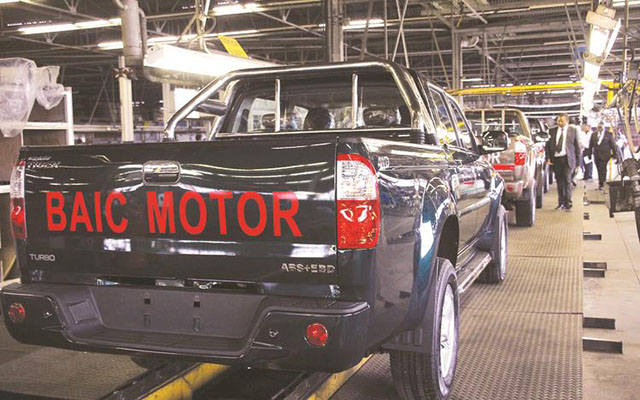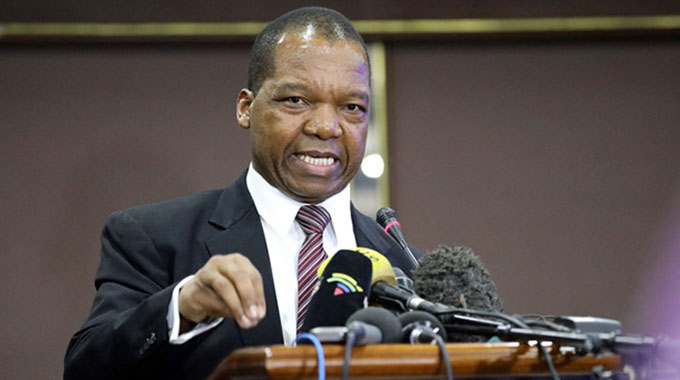Editorial Comment: Reforms to spur private sector growth

Zimbabwe enters the new year with confidence as signs of industry recovery are beginning to manifest. However, industry now needs to switch to industry growing, for the Government reckons it has fixed the basics and now wants the private sector to take the lead and do what it is supposed to do, make money.
The only caveat is that this money must come from honest business and preferably from production, making things that Zimbabweans want and will buy, and to an increasing extent things that other people in other countries want and will buy.
The reforms of the Second Republic include the concept that Governments are not the obvious people to run businesses, or even tell businesses how to run their companies or what to produce. So far as the Government is concerned, so long as a private business keeps decent accounts, pays its taxes by the due date and follows a relatively simple labour law, basically paying at least the minimum wage for each grade of staff with those minimums set by national industrial councils that group employers and trade unions, then please, make a success of it and enjoy the fruits of that success.
The Government sees its job as securing the infrastructure, making sure the business can get electricity, has a functional road to drive its trucks along, and, critically, has a fiscal and monetary system that allows businesses to operate in a business-like way without having to have friends in high places and without having to beg anyone for special favours.
To take one example, obtaining foreign currency for machinery, spares and essential imported inputs. For many years this required, at some point, having to sit up and beg before some bureaucrat to show that your business was essential and, sometimes, even having to sit up and beg in some Government department to get extra backing.
Since the middle of this year the system is quite different. You see your bank manager and fill in a form. You staple on the invoices from reputable suppliers, after making sure that the stuff you are buying is on the import priority list, but then everything that a real manufacturer needs will be on the list, along with almost everything that their service providers need, such as their IT supplier or the people who service and fix their machines.
You and your bank figure out your bid price, very simple right now since choosing last week’s average works, and your bank sends it off to the foreign currency auction. A few days later the forex bounces into your nostro account and your bank pays your bills. No sitting in a bureaucrat’s office, no begging letters.
The only problem you might have is with the bank manager, who wants to see that you have the Zimbabwe dollars in your account, so you need to manage cash flows tightly and be able to, if vital, borrow a little against cash flows that the manager agrees will be coming in next week.
Even Government procurement has been fixed. You no longer need a relative, or be willing to help out some official. In fact, you might go to jail if you try. You have to have some basics, like paying your taxes in full and on time, and have a real company with a real address and premises significantly larger than a briefcase, because someone will physically check before you go on the approved list. But that list is designed to exclude the dishonest and the chancers, not a proper business, even if the boss is a rude and grouchy old person who never socialises.
You watch the tender notices, you make your offer, and if you have the right stuff at the lowest price you win. The Government wants to support local industry and local businesses, by buying local, but is not really much fussed which local manufacturer does the supplying. Honesty, quality and price are the criteria. And that is pretty much how your private sector customers buy. You might be a wonderful golfer with lots of friends, but if you cannot supply the right stuff, on time, at the right price you will remain a golf buddy, not a business supplier.
It is these fundamental reforms of the Second Republic that have made business so much easier and more predictable. To be successful you just have to be good at what you do and the future fortunes are going to be made by those who do not try to take short cuts, shuffle papers or hang around bureaucratic or political offices. Money will be made by those who do and make.
Of course, business people are a bit like farmers, as they always complain. But if there is some licensing requirement that needs 30cm of documents tied with red tape and which must go to half a dozen offices, then complain, and even better get your business association to suggest a better system so that the crummy system is replaced.
A listening Government is shifting the piles of unnecessary regulation and trying to make the necessary rules, such as not polluting the environment, not poisoning your workers and customers, and being tax compliant, as simple as possible. A lot has been done, but there is always room for improvement and new needs, and new businesses, sometimes need better rules. The point is, you do not have to sit and suffer. Change is possible.
Business organisations have, for years, been making it clear what their members need to do business to grow their businesses, and to open new businesses. With the Second Republic they have been listened to, and lots of old problems, everything from load-shedding to weird bureaucracy, has been fixed. New systems are in place.
The fixing of Government finances has been far more thorough and wide-ranging than just containing spending within tax income, as revolutionary and as vital as that was. It is also how that tax revenue is distributed when it is spent. Now a business knows that almost a third of the taxes extracted each month go on capital spending, rather than salaries and social services, which are vital since those services include the education of your future employees and the hospitals your staff need. But the pure capital budget is making sure that you have roads, water supplies, electricity and new customers as the poorest are brought out of poverty to a level where they do have money to spend.
So for all of this the private sector must start thinking about growth, not survival, not recovery, not fixing something that is broken. Rather it must be thinking about how it can create real wealth.
The Second Republic reforms have created the opportunities, and will be creating more, for the hard working and honest who know what they are doing. The hard working, competent and honest need to grasp those opportunities and make money, for themselves, for their workers and for their country.









Comments